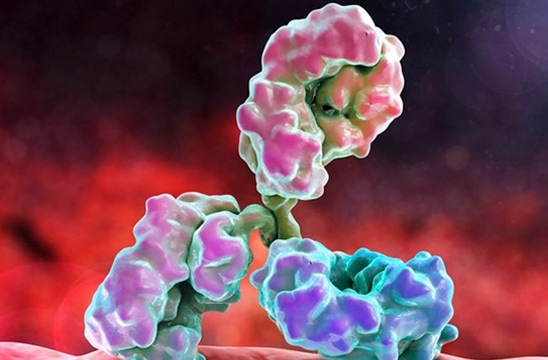
At the time of writing, there are no vaccines or therapies available for the prevention or cure of COVID-19.Many promising avenues are being investigated, includingthe use of mAbs as a blocking agent to neutralize the SARS-CoV-2 virus.
Should these mAbs be further explored as therapeutic, several parameters must be fully considered and understood.These parameters are commonly referred to asCritical Quality Attributes (CQAs)and are features of a biotherapeutic that may vary between, and within, batches and can affect the action of biotherapeutics.
When performing analysis of the COVID-19 spike proteins, it is also important to understand the intact protein, peptide, and glycan profile of a biotherapeutic.Other key factors to consider (listed below) include levels of aggregation and fragmentation, and the protein's native characteristics.
-
Aggregate and Fragment Analysis
mAb aggregation can trigger undesirable immunogenic responses, making it imperative to accurately measure aggregation levels.Size exclusion chromatography (SEC)can be used to understand the levels of aggregation and fragmentation present.There is now a pre-screeningAnalysis Solutionavailable for mAb aggregation utilizing theCary Eclipsewith theMicroplate Readeraccessory allowing significant time savings to aggregation analyses.
-
 Intact and Subunit Analysis
Intact and Subunit AnalysisBiotherapeutic proteins are often heterogeneous and contain a mixture of fragments and other production-related impurities.Looking at the intact protein and subunits viareverse-phasechromatography can give good information about the protein's identity, absolute mass, impurities, and post-translational modifications.These all help to paint a full picture of a biotherapeutic, so we can understand all parameters that could influence the drug's action.
-
 Intact Native Analysis
Intact Native AnalysisWithin a biotherapeutic, amino acids can carry modifications that are challenging to quantify and resolve.Modified proteins may be regarded as impurities, as they have different characteristics and, therefore, a subset of proteins does not have the desired therapeutic outcome.Impurity profiling can be thoroughly explored usingHydrophobic Interaction Chromatography (HIC), which uses salt gradients to separate samples in their intact, native state.
-
 Glycan Analysis
Glycan AnalysisGlycans are attached to specific sites on a protein and are determined during protein production.The glycan profile depends on several factors, including nutrient levels and the cell line(s) used for production.Glycans play a huge role in immunogenicity and cell signaling, making them a crucial factor to consider.Kits can be used to quickly and reliablyrelease and prepare glycans for analysisby HPLC.
CQAs are by no means limited to these options.Every biotherapeutic has its own quirks and variations that must be fully understood, and Covid-19 therapeutics are expected to present their own challenges.For support with method development and molecule analysis,必威体育登录手机contact Agilent.



